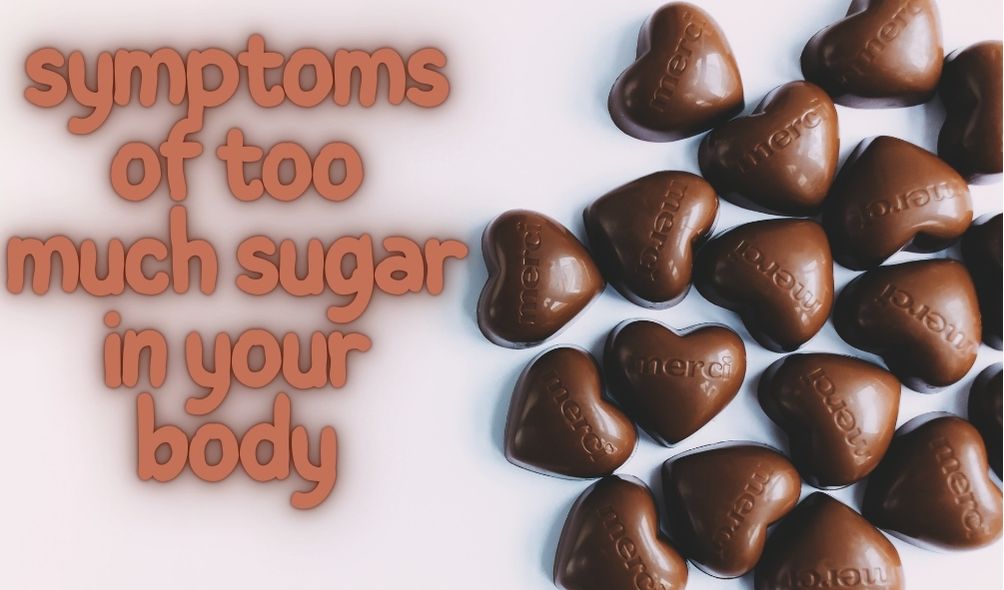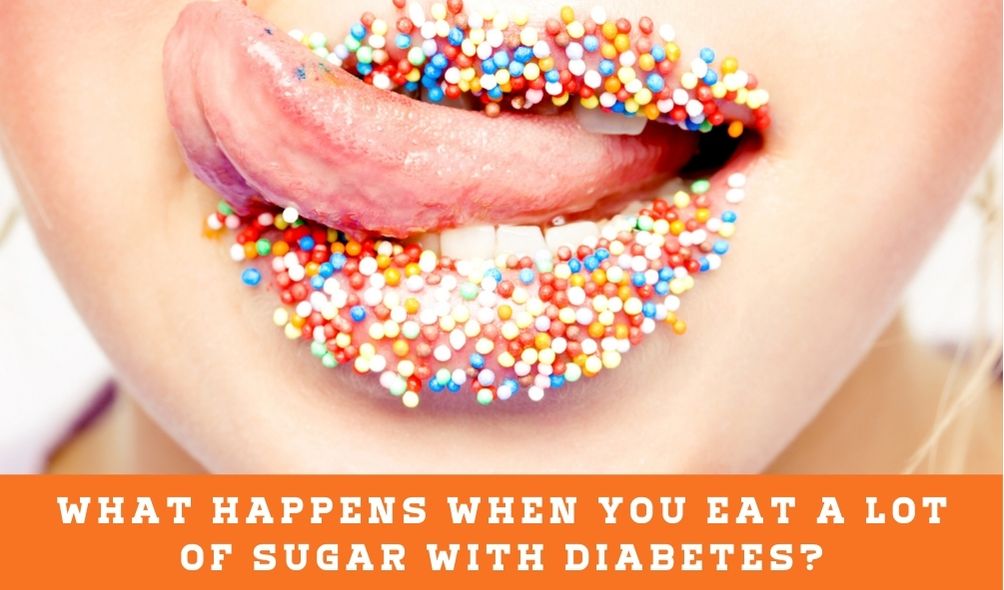What happens when you eat a lot of sugar with diabetes? This question diabetics may ask, which is like asking; what the worst that could happen? Or what is the worst-case scenario?
There are some symptoms and signs that hyperglycemia may cause if sugar isn’t at its normal levels. which the concerned person can notice during self-monitoring of his condition or in other ways, and among these symptoms are the following:
- Blood glucose level greater than 130 mg/dL before eatingl, or higher than 180 mg/dL two hours after the start of a meal. Feeling thirsty more often than usual.
- Frequent need to urinate,as High level of sugar in the urine than normal.
Symptoms of high blood sugar in diabetics usually do not show any symptoms until glucose levels rise significantly. For instance, when it is higher than 180-200 mg/dL, or higher than 10-11.1 mmol/L.
Also, symptoms appear and develop slowly over several days or even several weeks.
However, some people with type 2 diabetes may not show any symptoms for a long time despite their high levels of sugar.
In fact, the longer the period of high blood sugar level, the more serious the symptoms caused by it, and here are some of these symptoms in detail.
Check out our latest posts:
- Can You Chew Sugar-Free Gum While Intermittent Fasting?
- The Coffee Loophole for Weight Loss: Why It Is The Next Fad Diet?
- Optavia Ruined My Life: The Dark Side Of Optavia Diet
- Metabolic Confusion Diet Plan for Endomorph: 30 Days Free PDF
- AIP Reintroduction Phase; How to Start It The Right Way
Early symptoms of too much sugar in your body
- Feeling more thirsty than usual.
- Headache.
- Frequent urination.
- Difficulty concentrating.
- Blurred and blurred vision.
- Fatigue.
- Feeling hungry more than usual.
- Losing weight for no justified reason.
- Feeling of numbness or tingling in the hands or feet.
- The appearance of various changes and skin problems; Such as the appearance of pimples or dry skin.
- Sores that heal more slowly than usual.
- Swelling or bleeding in the gums, which increases the risk of infection.
- More fungal infections than usual.
Advanced signs and symptoms:
In fact, high blood sugar for a long period without treatment may lead to the accumulation of toxic acids in the blood and urine known as ketones, which cause the emergence of a complication known as diabetic ketoacidosis. The accompanying signs and symptoms include the following:
- The appearance of a mouth odor similar to the smell of fruits. shortness of breath.
- Mental confusion and confusion.
- Dry mouth.
- Feeling weak and tired with no improvement.
- Nausea and vomiting.
- Feeling pain in the abdomen.
Symptoms of too much sugar in your body

Some people may ask what happens when you eat too much sugar at once?
Actually, it is unnecessary that signs appear the moment you eat sugar or sweets, directly.
No doubt, sugar is an essential component in many foods, including bread.
But what are the negative effects of sugar on our bodies?
Actually, there are 10 frightening symptoms that may occur to the body when excessive consumption of sugar, that include:
Gaining weight:
Several studies have linked weight gain to drinks and foods that contain sugar, such as soft drinks and sweets. Check out diabetic diet for type 2 diabetes and weight loss.
Tooth decay
Sugar does not directly cause cavities, but the acidic substances that sweets leave on the teeth may cause cavities.
Skin problems
Scientists have proven that there is a relationship between the consumption of sugary foods and skin-related problems, such as the appearance of grains and allergies.
Addiction
Excessive intake of sugar leads to its addiction so that a person feels a constant desire to eat foods containing a high percentage of sugar.
Diabetes
With the genes present, eating sugar may lead to diabetes.
Depression
A scientific study in 2006 showed that eating too much sugar leads to a high rate of anxiety and may cause depression.
Heart disease
Medical studies have proven that eating too much sugar may expose a person to heart disease more.
Liver diseases
Recent studies have confirmed that sugar is as harmful to the liver as drinking alcohol.
Lack of satiation
One of the symptoms caused by sugar is the inability of the mind to feel that the body has had enough of foods and has reached the stage of satiety.
Memory problems
A 2015 study confirmed that reliance on a diet rich in sugar may affect human short and long memory.
What cases may you consider an emergency?
There are many emergency cases that needs seeking urgent medical help, these cases include:
- Feeling sick, with vomiting and diarrhea.
- Persistently high blood glucose levels above 240 mg/dL and symptoms of ketoacidosis in the urine.
- Breathing quickly and deeply.
- Fever lasting more than a day.
The appearance of signs of dehydration; like:
- Headache, dry skin, as well as weakness and rapid heartbeat.
- Difficulty keeping the patient awake.
When to see a doctor?
You should see a doctor in the following cases:
- Suffering from persistent diarrhea or vomiting, with the ability to eat certain foods or drink fluids.
- Blood glucose levels above 240 mg/dL despite the patient taking prescribed diabetes medications. Difficulty maintaining the level of glucose in the blood within the required levels.
